
Having bred poultry now for quite some time, I’ve never shied away from preparing our own birds for eating, either as joints or a whole roast. You know how they’ve been fed, raised and humanely processed. Of course you have to decide which species of bird; chickens, ducks or geese.
CHOOSING CHICKENS
Starting with chickens, obviously you’ll get more meat from a large fowl rather than a bantam, and there are specific meat birds you may wish to purpose. Here in France they are Bresse; large white meaty birds, whilst in the UK Cobb or Ross meat birds are commercially available. You’ll of course get more meat from a meat bird, but you can always create your own meat birds from crossing Light Sussex, Marans or Orpingtons with a Cornish game bird, for example. A typical commercial laying hen will be a poor reward for the cost of feeding it up, so concentrate on the larger, heavier breeds.
Timing is crucial, of course. Before four months old, there will be lots of growing, and not a lot of putting on flesh or weight. Waiting after six months means any male birds are sexually active and all that chasing females will result in strong (often tough) leg meat and not a lot on the breastbone. Personally, with my own birds, I aim to prepare them at five months old, although Cobb or Ross birds will be ready to eat much sooner. Keeping birds in a secure and lit shed with constant access to food will also develop a heavier bird quicker - after all, what else have they to do but eat?
Esta historia es de la edición May 2023 de The Country Smallholder.
Comience su prueba gratuita de Magzter GOLD de 7 días para acceder a miles de historias premium seleccionadas y a más de 9,000 revistas y periódicos.
Ya eres suscriptor ? Conectar
Esta historia es de la edición May 2023 de The Country Smallholder.
Comience su prueba gratuita de Magzter GOLD de 7 días para acceder a miles de historias premium seleccionadas y a más de 9,000 revistas y periódicos.
Ya eres suscriptor? Conectar
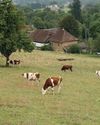
How to Buy a Smallholding in France- Long-time smallholder Lorraine Turnbull looks at the practicalities of moving to rural France
Aspiring smallholders are continually thwarted by the prices of smallholdings and property with land located within the UK. Even the humblest croft in Scotland comes with a substantial price tag and conditions which would make even an adventurous wannabee consider carefully. But all is not lost. For those willing to take the adventure of a lifetime, there is always Europe, and one of the most popular places is France.

Meet the Bournemouth goats and their supporters
These capricious animals are hard workers preserving the natural habitat
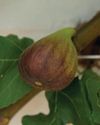
Still warm enough to sit outside with a Pizza
Henrietta Balcon uses fresh figs to create an unusual dish at Harvest time
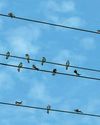
Goodbye to the birds of spring and summer
If you look and listen you might be able to see them preparing to leave says The RSPB
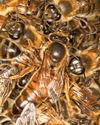
Get ready for the colder weather in the warmth of late summer
Claire Waring advises on doing the best to make sure your colonies survive until next spring
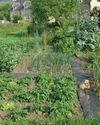
Preparing the Veg Patch for Winter
Lee Senior says, a well-run plot can excitingly continue to produce good quality, tasty, fresh food for much of winter
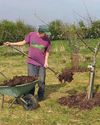
Time to prepare to plant your orchard
Wade Muggleton, smallholder and author of The Orchard Book, shares his practical experience so you can create your own fruit collection
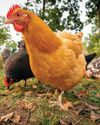
Choosing feed for the autumn
As autumn approaches, Joanna Palmer, nutritionist at the Smallholder Range, offers advice on choosing the right feed to support your adult birds through their annual moult and ensure your young birds grow and finish well at this time of the year.
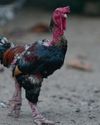
Vet advice from an experienced poultry vet
Reflecting on how much the humble hen has helped people world wide plus advice on stopping the scourge of red mite
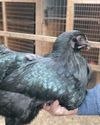
Give your hens some support
Paul Donovan looks at the right and wrong ways of handling birds